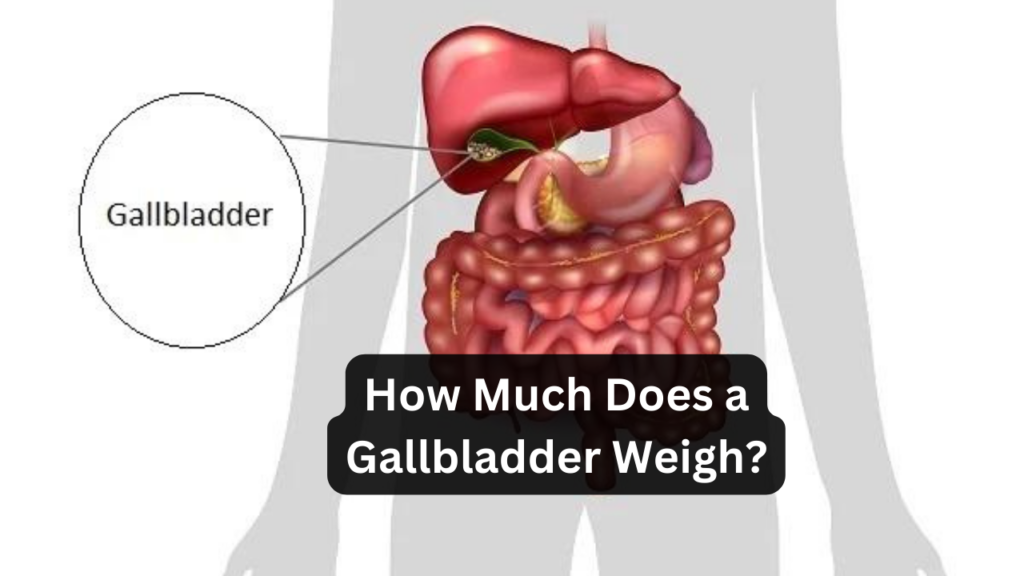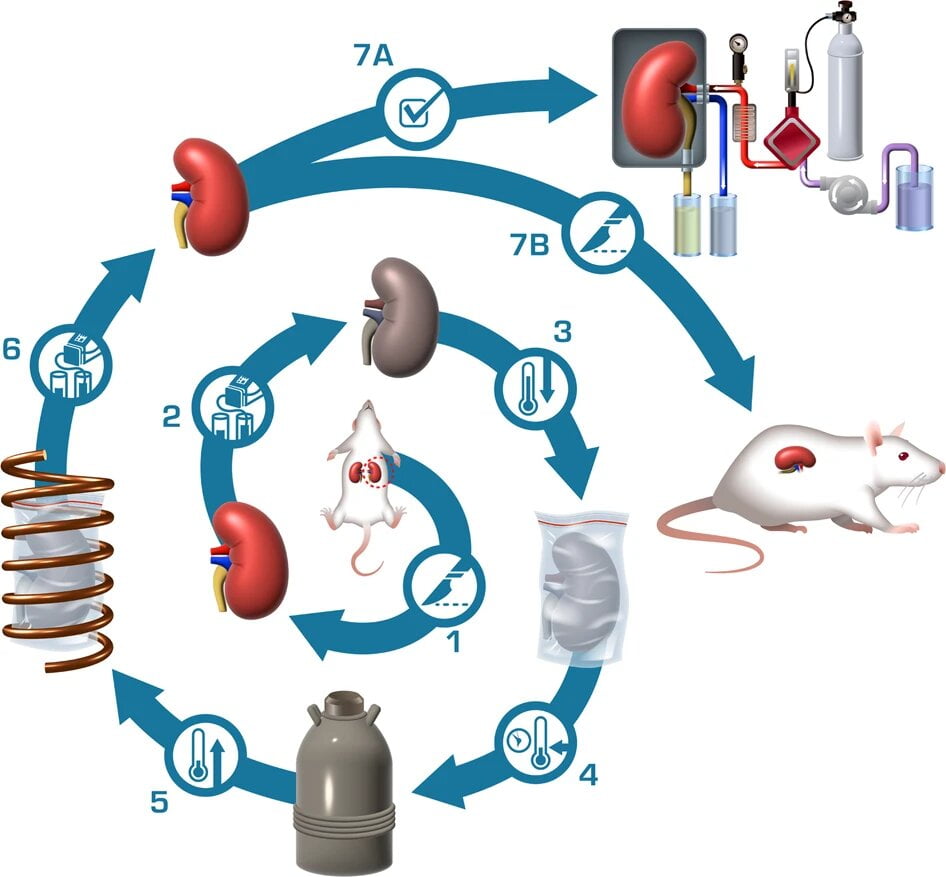The gallbladder, a pear-shaped sac nestled beneath your liver, plays a crucial role in digestion. It stores and concentrates bile, a greenish-yellow fluid produced by the liver that aids in fat breakdown.
Though small and often overlooked, the gallbladder’s weight, while seemingly insignificant, can offer valuable insights into its health and potential issues.
How Much Does a Gallbladder Weigh?
While the exact weight of a healthy gallbladder can vary slightly, it typically falls within the range of 15 to 25 grams. This translates to roughly the weight of a large strawberry or a couple of tablespoons of water. However, several factors can influence its size and, consequently, its weight:
- Age: As we age, our gallbladders tend to shrink slightly, leading to a decrease in weight.
- Gender: Women generally have slightly larger and heavier gallbladders than men.
- Body size: Individuals with larger body frames may have slightly heavier gallbladders due to increased bile storage needs.
- Gallstones: The presence of gallstones can significantly increase the gallbladder’s weight, sometimes even doubling it.

Beyond the Scale Why Gallbladder Weight Matters
While the absolute weight of the gallbladder might not be a standalone indicator of health, it can play a role in understanding potential issues:
- Gallstones: A significantly heavier gallbladder, especially when accompanied by symptoms like abdominal pain, nausea, or vomiting, could suggest the presence of gallstones. Gallstones can irritate the gallbladder and hinder its ability to function properly, leading to weight gain.
- Inflammation: Gallbladder inflammation (cholecystitis) can also cause the organ to swell and increase in weight. This condition often presents with severe pain and requires prompt medical attention.
- Gallbladder polyps: These benign growths, while not as common as gallstones, can contribute to a slightly heavier gallbladder. However, they usually don’t cause any symptoms and rarely require intervention.
Monitoring Your Gallbladder Size Isn’t Everything

While gallbladder weight can offer clues about potential issues, it’s not the only factor to consider. Regularly monitoring your overall health and being aware of any concerning symptoms is crucial for early detection and management of gallbladder problems. Some key warning signs to watch out for include:
- Abdominal pain, especially in the upper right quadrant
- Nausea and vomiting
- Fever and chills
- Jaundice (yellowing of the skin and eyes)
- Dark urine and pale stools
If you experience any of these symptoms, consult your doctor promptly for a proper diagnosis and treatment plan. Early intervention can help prevent complications and ensure optimal gallbladder health.
Maintaining a Healthy Gallbladder A Holistic Approach
Medical News Today
Visual representations of abdominal pain, nausea, vomiting, fever, and chills.
Beyond monitoring your weight and symptoms, several lifestyle practices can contribute to a healthy gallbladder:
- Maintain a healthy weight: Obesity is a risk factor for gallstones. Aim for a balanced diet and regular exercise to keep your weight in check.
- Choose a healthy diet: Opt for a diet rich in fruits, vegetables, and whole grains, and limit your intake of processed foods, sugary drinks, and unhealthy fats.
- Stay hydrated: Drinking plenty of water helps flush out toxins and keeps your digestive system functioning smoothly.
- Manage stress: Chronic stress can contribute to gallbladder problems. Practice relaxation techniques like yoga or meditation to manage stress levels.
Conclusion
While the gallbladder’s weight may seem like a trivial detail, it holds valuable insights into its health and potential issues.
By understanding the factors that influence its size and weight, and by being mindful of any concerning symptoms, you can take proactive steps towards maintaining a healthy gallbladder and ensuring optimal digestive function.
Remember, a healthy lifestyle, coupled with regular checkups, is key to keeping your gallbladder functioning optimally and supporting your overall well-being.
Resources & References
- National Institute of Diabetes and Digestive and Kidney Diseases: https://pubmed.ncbi.nlm.nih.gov/10464139/
- Mayo Clinic: https://www.mayoclinic.org/diseases-conditions/gallstones/symptoms-causes/syc-20354214
- Cleveland Clinic: https://my.clevelandclinic.org/departments/digestive/depts/gallstones
- American College of Gastroenterology: https://gi.org/
Note: This article is intended for informational purposes only and should not be interpreted as medical advice. Always consult your doctor for any questions or concerns regarding your health.
FAQs About Gallbladder Weight
How much does a healthy gallbladder weigh?
On average, a healthy adult gallbladder weighs between 15 and 25 grams, roughly equivalent to a large strawberry or a couple of nickels! However, remember, this is just an average, and individual variations exist.
What factors affect gallbladder weight?
Several factors can influence your gallbladder’s weight, including:
- Age: As we age, our gallbladders tend to shrink slightly, leading to decreased weight.
- Gender: Studies suggest women generally have slightly heavier gallbladders than men.
- Body size: Individuals with larger body sizes may have slightly heavier gallbladders due to increased bile storage needs.
- Gallbladder health: The presence of gallstones or inflammation can affect the weight and size of the gallbladder.
What does an unusually heavy gallbladder indicate?
A significantly heavier gallbladder, exceeding 30 grams, could be a sign of inflammation or gallstone formation. If you experience other symptoms like abdominal pain, nausea, or jaundice alongside increased weight, consult your doctor for a proper diagnosis.
What if my gallbladder weighs less than average?
A rapid decrease in gallbladder weight, particularly with symptoms like abdominal pain or jaundice, could indicate shrinkage due to chronic inflammation or blockage. Again, prompt medical attention is crucial in such cases.
Does gallbladder weight change affect digestion?
Significant changes in gallbladder weight can indeed affect digestion. A heavier gallbladder might struggle to contract efficiently, while a very small one might not store enough bile for proper fat digestion.
Does gallbladder removal impact weight?
Following gallbladder removal, some individuals experience weight changes, either gaining or losing weight. This can be attributed to various factors like dietary adjustments, changes in digestion, and even emotional responses to the surgery.
Consulting a doctor or registered dietitian can help manage weight changes after gallbladder removal.


